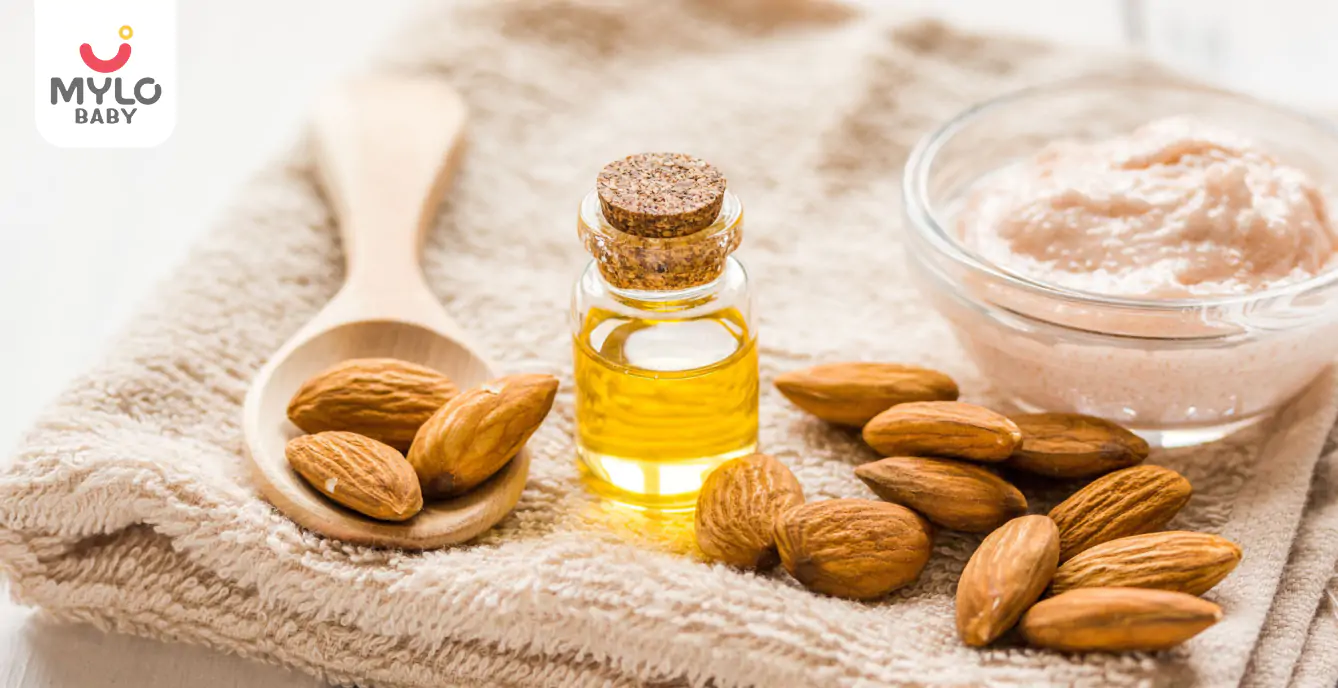Home

Reproductive health

Low Sperm Count Signs You Should Never Ignore
In this Article

Reproductive health
Low Sperm Count Signs You Should Never Ignore
Updated on 20 February 2024



Medically Reviewed by
Dr. Shruti Tanwar
C-section & gynae problems - MBBS| MS (OBS & Gynae)
View Profile

Sperm count plays a vital role when it comes to reproductive health and fertility. Low sperm count, or oligospermia, is a common concern affecting a man's ability to father a child. It's essential to be aware of low sperm count signs and take them seriously. This article will explore the symptoms you should never ignore regarding low sperm count.
Whether you're planning to start a family or are simply curious about male fertility, understanding the symptoms of low sperm count can provide valuable insights and prompt timely action. So, let's dive in and uncover the critical indicators that may suggest a low sperm count and tips for getting pregnant with low sperm count.
What is a low sperm count?
Low sperm count, scientifically called oligospermia, is characterized by a lower-than-normal number of sperm cells in a man's semen. It is diagnosed when the concentration of sperm in a semen sample is below a certain threshold, typically defined as fewer than 15 million sperm per milliliter.
It's important to note that having a low sperm count does not necessarily mean a man is infertile. With advancements in assisted reproductive technologies and appropriate medical interventions, many men with low sperm count can still achieve fatherhood.
You may like: Top 4 Kinds of Infertility Treatments to Cure Male Infertility
Understanding low sperm count and its causes
Before we identify low sperm count signs, let's explore the causes of low sperm count:
1. Medical Conditions
Certain medical conditions can contribute to low sperm count. These may include hormonal imbalances, testicular infections, varicocele (enlarged veins in the testicles), genetic disorders, and anatomical abnormalities.
2. Lifestyle Factors
Various lifestyle factors can impact sperm production. These include excessive alcohol consumption, smoking, illicit drug use, obesity, and exposure to environmental toxins like pesticides, chemicals, and radiation.
3. Medications and Treatments
Some medications, such as certain antibiotics, antifungals, and testosterone replacement therapy, may affect sperm production. Additionally, chemotherapy and radiation therapy for cancer can harm sperm cells.
4. Age
Advanced age can be a contributing factor to low sperm count. As men age, the quantity and quality of sperm may decline, making conception more challenging.
5. Emotional and Physical Stress
Prolonged emotional and physical stress can negatively impact hormone levels and sperm production, decreasing sperm count.
6. Overheating of the Testicles
Frequent exposure of the testicles to high temperatures, such as prolonged use of saunas or hot tubs, tight-fitting underwear, or occupational hazards like working in hot environments, can affect sperm production.
7. Unhealthy Diet
Poor nutrition, including a lack of essential vitamins and minerals, can influence sperm production and overall reproductive health.
You may like : Are You Aware of These Common Male Infertility Problems? What Are the Signs, Symptoms & Causes of It?
Signs and symptoms of low sperm count
Here are the low sperm count signs and symptoms summarized in points:
- Difficulty conceiving
- Sexual dysfunction
- Pain or swelling in the testicles
- Changes in testicle size or texture
- Hormonal imbalance symptoms
Tips for getting pregnant with low sperm count
Here are some tips that can help you conceive with a low sperm count:
1. Timing Intercourse
Have regular intercourse around ovulation to maximize the chances of sperm reaching the egg.
2. Optimal Sexual Position
Certain sexual positions, such as missionary or rear entry, can facilitate deeper penetration, allowing sperm to be deposited closer to the cervix and increasing the chances of conception.
3. Maintain a Healthy Lifestyle
Encourage your partner to maintain a balanced diet, exercise regularly, and avoid smoking, excessive alcohol consumption, and drug use.
4. Manage Stress
High levels of stress can affect fertility. Encourage relaxation techniques like yoga, meditation, deep breathing exercises, or engaging in activities that help reduce stress and promote emotional well-being.
5. Avoid Heat Exposure
Excessive heat can harm sperm production. Advise your partner to avoid hot tubs, saunas, and prolonged exposure to hot environments.
6. Nutritional Supplements
Some studies suggest that certain nutritional supplements, such as zinc, folate, and antioxidants, may positively impact sperm health.
Men looking to boost their fertility can also try Mylo's Potenmax Testosterone Booster Capsules that are an effective blend of Omega-3 fatty acids, safed musli, ashwagandha, fenugreek and kaunch beej, among others. These ingredients can help improve sperm motility and quality, increase testosterone levels, enhance physical performance and boost energy and stamina.
Diagnosis and treatment options for low sperm count
If you suspect low sperm count signs, it’s important to seek proper diagnosis and treatment. Some diagnostic tests that can help identify low sperm count include:
1. Semen Analysis
A semen analysis is the primary diagnostic test to assess sperm count, motility, morphology (shape), and other factors. It helps determine the severity of low sperm count and provides valuable information for treatment planning.
2. Hormonal Evaluation
Blood tests may be conducted to check hormone levels, such as testosterone, follicle-stimulating hormone (FSH), luteinizing hormone (LH), and prolactin, which play a role in sperm production.
3. Physical Examination
A physical examination may assess the reproductive organs and identify any abnormalities or conditions that could contribute to low sperm count.
Once a low sperm count has been identified, it’s important to treat the condition as well. Here are some treatment options available:
1. Lifestyle Changes
Making healthy lifestyle modifications can positively impact sperm count.
2. Medications
Medications may be prescribed to address hormonal imbalances, increase sperm production, or improve sperm motility.
3. Assisted Reproductive Techniques
Assisted reproductive technologies, such as intrauterine insemination (IUI) or in vitro fertilization (IVF), may be recommended to bypass low sperm count and increase the chances of successful fertilization.
4. Surgical Interventions
In some instances, surgical procedures may address anatomical abnormalities, such as varicocele repair, which can improve sperm production and quality.
5. Sperm Retrieval Techniques
Sperm retrieval techniques like testicular sperm extraction (TESE) or epididymal sperm aspiration (PESA) may be considered to retrieve sperm directly from the testicles or epididymis for assisted reproductive procedures.
It's essential to consult a fertility specialist who can assess your situation, provide an accurate diagnosis, and recommend the most appropriate treatment options tailored to your needs.
You may like: How To Make Sperm Stronger For Pregnancy
Lifestyle changes to improve sperm count
Making specific lifestyle changes can positively impact sperm count and overall sperm health. Here are some lifestyle changes that may help improve sperm count:
1. Healthy Diet
Follow balanced and nutritious diet rich in fruits, vegetables, whole grains, lean proteins, and healthy fats. Include foods high in antioxidants as they may help protect sperm from oxidative stress.
2. Manage Weight
Maintain a healthy weight through regular exercise and a balanced diet. Obesity has been linked to lower sperm count and decreased sperm quality.
3. Avoid Excessive Heat
Avoid prolonged exposure to heat sources, such as hot tubs, saunas, or wearing tight-fitting underwear, as high temperatures can affect sperm production.
4. Quit Smoking
Smoking has been shown to harm sperm count and motility. Quitting smoking can significantly improve sperm health.
5. Limit Alcohol Consumption
Excessive alcohol intake can affect hormone levels and sperm production. Limit alcohol consumption to moderate or avoid it altogether.
6. Reduce Stress
Chronic stress can affect fertility. Find healthy ways to manage stress, such as regular exercise, meditation, yoga, or engaging in hobbies and activities that promote relaxation.
7. Exercise Regularly
Engage in moderate exercise regularly, as it can help improve overall health, hormone balance, and sperm quality.
8. Stay Hydrated
Drink adequate water to stay hydrated, as proper hydration is essential for optimal sperm production.
Foods that can help increase sperm count
Indian cuisine offers a wide range of foods known for their potential to enhance sperm count and overall sperm health. Here are some Indian foods that may help increase sperm count:
1. Dry Fruits and Nuts
Almonds, walnuts, cashews, and raisins are nutrient-dense foods that contain essential fatty acids, vitamins, and minerals that support sperm health.
2. Indian Ginseng (Ashwagandha)
This powerful adaptogenic herb is believed to enhance fertility and increase sperm count. It can be consumed in powdered form or as a supplement.
3. Spinach
Loaded with folic acid, iron, and antioxidants, spinach promotes healthy sperm production. Please include it in your diet through curries, stir-fries, or smoothies.
4. Garlic
Known for its medicinal properties, garlic can help boost sperm count and improve blood circulation.
5. Saffron
This precious spice is believed to enhance sperm count and motility. Add a pinch of saffron to milk or use it in your cooking for flavor and potential health benefits.
6. Pumpkin Seeds
Rich in zinc, pumpkin seeds support healthy testosterone levels and sperm production. Include them as a snack or sprinkle them over salads and yogurt.
7. Indian Gooseberry (Amla)
Amla is a potent vitamin C and antioxidant source, which may help improve sperm quality. Consume it fresh or as a juice for maximum benefits.
Incorporating these foods into a balanced and nutritious diet and a healthy lifestyle may contribute to managing low sperm count signs and overall reproductive health.
Herbal remedies for low sperm count
Herbal remedies have been used for centuries to address various health concerns, including low sperm count. While there is no scientific evidence to support the effectiveness of these herbal remedies, here are some commonly suggested herbs that are believed to help improve sperm count potentially:
1.Tribulus Terrestris
Also known as Gokshura, Tribulus Terrestris is believed to enhance testosterone production and sperm count. It can be consumed in the form of supplements or herbal teas.
2. Maca Root
Maca root is an adaptogenic herb that supports hormonal balance and improves fertility. It can be consumed as a powder, capsule, or added to smoothies.
3. Ashwagandha
Ashwagandha is an Ayurvedic herb known for its rejuvenating properties. It is believed to enhance sperm count, motility, and overall sperm quality.
4. Safed Musli
Safed Musli is a medicinal herb believed to have aphrodisiac properties and may support healthy sperm production. It can be consumed as a powder or in capsule form.
5. Shilajit
Shilajit is a mineral-rich substance that is often used in Ayurvedic medicine. It is believed to boost testosterone levels, enhance sperm count, and improve reproductive health.
6. Horny Goat Weed
Also known as Epimedium, Horny Goat Weed is believed to enhance sexual performance and improve sperm count. It is available in various forms, including capsules and extracts.
7. Ginseng
Ginseng is an adaptogenic herb that may help support healthy testosterone levels and improve sperm count. It can be consumed as a supplement or added to herbal teas.
8. Ginkgo Biloba
Ginkgo Biloba is an herb known for its antioxidant properties and potential benefits on reproductive health. It can be consumed as a supplement or brewed as a tea.
It's advisable to consult with a healthcare professional, herbalist, or Ayurvedic practitioner before incorporating herbal remedies into your routine to ensure safety and proper usage. They can provide personalized recommendations based on your specific condition and overall health.
Final thoughts
Low sperm count is a common concern that can significantly impact male fertility. Recognizing low sperm count signs and symptoms is crucial for early intervention and seeking appropriate treatment options. With the support of healthcare professionals, partners, and a well-rounded approach to treatment, many individuals can overcome symptoms of low sperm count and increase their chances of achieving a successful pregnancy.
References
1. Ferlin, A., Garolla, A., Ghezzi, M., Selice, R., Palego, P., Caretta, N., Di Mambro, A., Valente, U., De Rocco Ponce, M., Dipresa, S., Sartori, L., Plebani, M., & Foresta, C. (2021). Sperm Count and Hypogonadism as Markers of General Male Health. European Urology Focus, 7(1), 205–213.
2. Salas-Huetos, A., Rosique-Esteban, N., Becerra-Tomás, N., Vizmanos, B., Bulló, M., & Salas-Salvadó, J. (2018). The Effect of Nutrients and Dietary Supplements on Sperm Quality Parameters: A Systematic Review and Meta-Analysis of Randomized Clinical Trials. Advances in Nutrition, 9(6), 833–848.
Tags
Low Sperm Count Signs in Hindi, Low Sperm Count Signs in Bengali, Low Sperm Count Signs in Tamil, Low Sperm Count Signs in Telugu





Medically Reviewed by
Dr. Shruti Tanwar
C-section & gynae problems - MBBS| MS (OBS & Gynae)
View Profile


Written by
Ravish Goyal
Official account of Mylo Editor
Read MoreGet baby's diet chart, and growth tips

Related Articles
RECENTLY PUBLISHED ARTICLES
our most recent articles

Announcements & Celebrations
Welcoming New Born Baby Quotes to Celebrate Life's Greatest Gift

Announcements & Celebrations
It's a Baby Girl! 50+ Ideas for Announcing Your Daughter's Birth

Never Miss These Crucial Warning Signs of Emotional Development Problems in Your Baby

Baby Massage
The Ultimate Guide to Using Almond Oil for Baby Massage

New Parent
An ultimate guide about health, growth, and care for a 7-weeks-old baby

Posterior Placenta: A Comprehensive Guide for Moms-to-Be
- Let's know more about the growth and development of the brain in infants and early childhood.
- Postnatal Care in India
- Low Birth Weight: Causes, Complications & Treatment
- Laparoscopic Ovarian Drilling: A Safe and Effective Solution for PCOS-Related Infertility
- Headache During Pregnancy: The Ultimate Guide to Causes and Cures
- Fetal Doppler Scan During Pregnancy: In which week should you get it done?
- How Long Should Naps Be While Pregnant?
- Blocked Fallopian Tubes: How They Affect Your Chances of Conceiving
- How Do You Notify Your Employer That You Are Pregnant?
- The Ultimate Guide to Consuming Tapioca During Pregnancy
- Braxton Hicks Contractions or Real Labor: How to Tell Them Apart?
- Top 10 Tips For The Third Trimester Of Your Pregnancy
- Maternity Leave 101: Rules, Benefits & Timings for Expectant Working Women
- The A-Z Guide to Identifying Summer Vegetables for Kids


AWARDS AND RECOGNITION

Mylo wins Forbes D2C Disruptor award

Mylo wins The Economic Times Promising Brands 2022
AS SEEN IN

- Mylo Care: Effective and science-backed personal care and wellness solutions for a joyful you.
- Mylo Baby: Science-backed, gentle and effective personal care & hygiene range for your little one.
- Mylo Community: Trusted and empathetic community of 10mn+ parents and experts.
Product Categories
baby carrier | baby soap | baby wipes | stretch marks cream | baby cream | baby shampoo | baby massage oil | baby hair oil | stretch marks oil | baby body wash | baby powder | baby lotion | diaper rash cream | newborn diapers | teether | baby kajal | baby diapers | cloth diapers |




